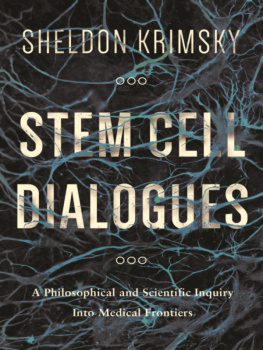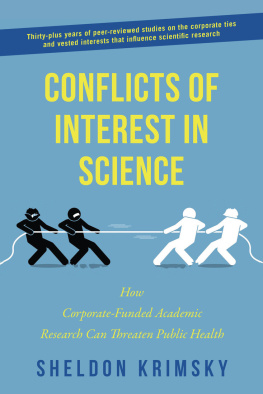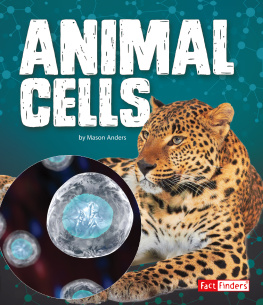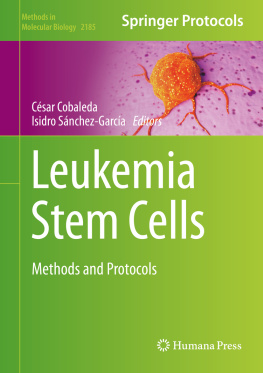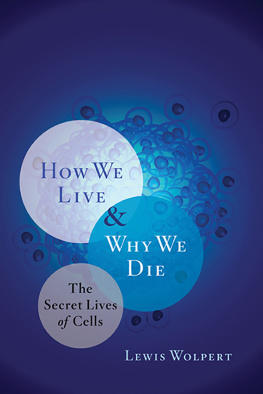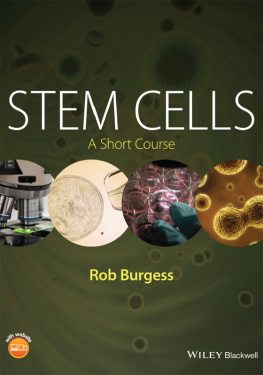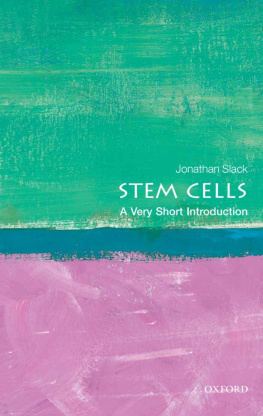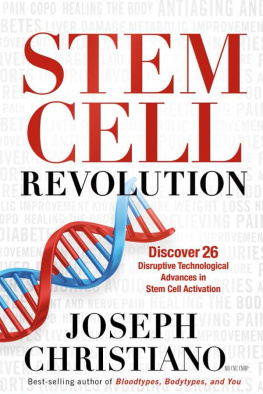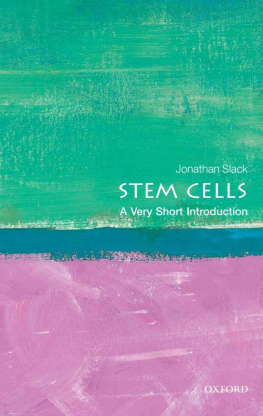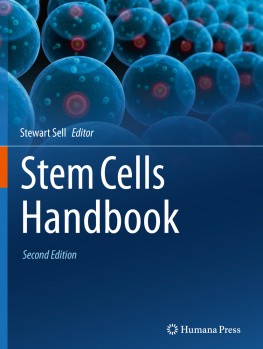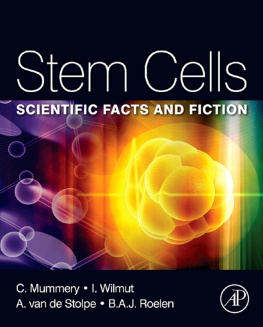STEM CELL DIALOGUES
SHELDON KRIMSKY
STEM CELL DIALOGUES
A Philosophical and Scientific Inquiry Into Medical Frontiers
COLUMBIA UNIVERSITY PRESS
NEW YORK
Columbia University Press
Publishers Since 1893
New York Chichester, West Sussex
cup.columbia.edu
Copyright 2015 Sheldon Krimsky
All rights reserved
E-ISBN 978-0-231-53940-1
Library of Congress Cataloging-in-Publication Data
Krimsky, Sheldon.
Stem cell dialogues : a philosophical and scientific inquiry into medical frontiers / Sheldon Krimsky.
pages cm
Includes bibliographical references and index.
ISBN 978-0-231-16748-2 (cloth : alk. paper) ISBN 978-0-231-53940-1 (electronic)
1. Embryonic stem cellsResearchMoral and ethical aspects. 2. GeneticsMoral and ethical aspects. 3. Medical geneticsMoral and ethical aspects. 4. Bioethics. I. Title.
QH588.S83K75 2015
174.2'8dc23
2014039574
A Columbia University Press E-book.
CUP would be pleased to hear about your reading experience with this e-book at .
COVER DESIGN: Faceout Studio/Charles Brock
COVER IMAGE: Getty
References to websites (URLs) were accurate at the time of writing. Neither the author nor Columbia University Press is responsible for URLs that may have expired or changed since the manuscript was prepared.
For my wife, Carolyn Boriss-Krimsky, whose playwriting sparked my interest in using dialogues in this book.
CONTENTS
Sitting in a park on an April afternoon, Samuel Franklin, a sixty-six-year-old retired contractor, and his daughter Rebecca, a physician and Ph.D. medical geneticist, are enjoying a conversation. Samuel is in a wheelchair and tethered to a breathing machine. Classified as a quadriplegic, he has partial movement in the fingers of one hand, enough to move a computer mouse. Rebecca is sitting next to him, on a bench.
Charles Walker is a stem cell biologist, one of the nations pioneers in isolating, activating, and delivering embryonic stem cells to tissues in rodents. After receiving her masters degree in bioethics and before she started her own career in stem cell research, Dr. Rebecca Franklin interviewed Dr. Walker in his laboratory for an article she was planning to write for a general audience, like her father.
The White House. Bernard Stein, M.D., is an ethics advisor to President George W. Bush, head of a national bioethics advisory panel, and a leading scholar on reproductive ethics. Dr. Franklin obtained an appointment with Dr. Stein to discuss President Bushs policies on human embryonic stem cells.
Arguments are heard before the three-judge panel of the U.S. Court of Appeals for the District of Columbia regarding Sherley v. Sebeliusa challenge to the executive order by President Barack Obama allowing federal funds to be used for human embryonic stem cell research, as long as it involves embryos that were created for reproductive purposes and are no longer needed for those purposes.
A panel discussion with Rabbi Jacob Goldman, Monsignor Patrick Callahan, and Mary Osborn on the moral status of early embryos. Osborn is a secular humanist and author of the acclaimed book Ethics Without God. Dr. Franklin acts as moderator.
Dr. Franklin flies to Germany to discuss the politics and ethics of stem cells with scientist Gordon Baum. Franklin is interested in how German scientists view their responsibility to the law and ethical norms while they investigate the medical benefits of human embryonic stem cells. She wants to understand why Germany does not permit scientists to destroy embryos in order to derive stem cells.
Catholic bioethicist Paul Flannery and Dr. Franklin discuss the alternatives to destroying embryos in order to acquire pluripotent stem cells. Flannery has been advocating against the use of live embryos. Franklin challenges his view and proposes keeping all research opportunities open to scientists, a policy she refers to as stem cell pluralism.
Beverly Simpson has been living with type 1 diabetes her entire life. Her endocrinologist, Janet Richfield, is a stem cell scientist working on producing islet cells that can be transplanted to diabetics like Simpson to cure their insulin deficiency. Dr. Richfield discusses with Ms. Simpson the progress in clinical trials involving personalized embryonic stem cells that eventually could lead to a cure for her diabetes.
Dr. Franklin interviews a vascular surgeon and specialist in stroke victims, Leonard Hendricks, from the United Kingdom. He is a consultant to the UK company ReNeuron, which has pioneered developing stem cell therapeutics for stroke victims. Dr. Franklin is trying to understand the relationship between stem cell development for stroke victims and spinal cord injury. Because she does not engage in clinical work, she hopes to learn about the challenges of translational medicine in moving from research to clinical applications.
Ben Townsend is a stem cell scientist working with a team of ophthalmologists who has spent the last nine years trying to develop stem cells for the treatment of macular degeneration. His mother, Barbara Townsend, is a professor emeritus in the history of medicine at the University of Pennsylvania. She is in the early stages of macular degeneration and is preparing an article on stem cell therapy to treat the disease. She is also looking into entering a clinical trial and discusses it with her son and their friend Dr. Franklin.
Genetic oncologist Dr. Arthur Cosgrove is trying to convince Senator Brad Furst, a senior member and chairman of the oversight subcommittee of the National Cancer Institute, to add a rider to the new NIH budget that dedicates $500 million for research on cancer stem cells, which Cosgrove believes will revolutionize treatments for cancer. The Senate hearing where Dr. Cosgrove has been called to testify is focused on the new budget. Dr. Franklin, seeking to find a cure for her fathers paralysis, has also been invited to testify.
Dr. Frederick Jones is a stem cell biologist who has invested considerable time reprogramming somatic cells to make them into embryonic stem cell-like cells (pluripotency). Dr. Franklin questions him about reversing the development of a differentiated cellplaying the role of skeptic about the prospects of cell reprogramming for producing therapeutic stem cells. She draws on her knowledge of epigenetics and cellular biology.
Dr. Leonard Phillips is a pediatric cardiologist who is treating a young child with an unusual arrhythmia. Dan Henderson is a cell biologist whose research centers on cardiac electrolyte abnormalities, one of the causes of arrhythmia. Henderson has embraced using stem cells as a revolutionary approach to evaluating drug therapies for electrolyte abnormalities that have a genetic etiology. Will stem cells reveal the etiology of the arrhythmia and open up a new therapeutic option?
Dr. Howard Chadwick is director of the National Center for Stem Cells within the (fictional) National Institutes of Health. The purpose of the center is to help integrate regenerative medicine into the work of all the institutes. Dr. Chadwick is between a rock and a hard place with regard to embryonic stem cells: he recognizes their potential in science as well as the political firestorm they have produced. He calls upon Dr. Franklin to help him navigate through this ethical minefield.

